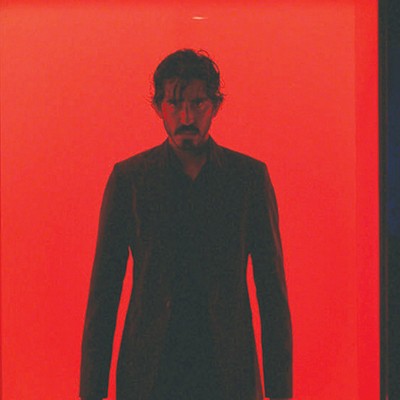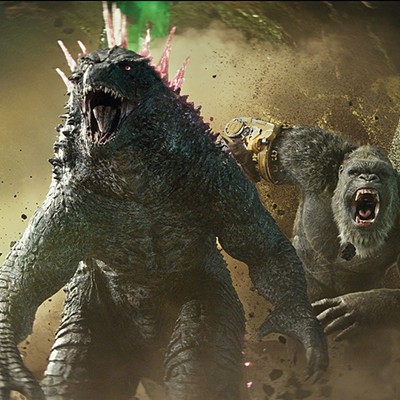Hells angel. "Gonzo journalism" is the self-coined phrase that Hunter S. Thompson used to describe his writing because it seemed so far out of control it defied normal terminology. And it was a word he liked. Over time he became all things "Gonzo." Gonzo: The Life and Work of Dr. Hunter S. Thompson expands on this theme... or tries to.
There have been several films focused on Thompson and I was hoping this was going to be the definitive movie. It holds your attention at the beginning with a Natural Born Killers feel and follows with great interviews and archival footage, but ultimately the story is conveyed a hell of a lot better in Tom Thurman's 2006 film Buy the Ticket, Take the Ride.
Gonzo follows Thompson's writing years, detailing his journalistic Fear and Loathing books and articles, his reporting on political campaign trails and drug and alcohol experimentation. The movie begins in Thompson's home of Woody Creek, Colo. showing him firing guns to an exhilarating choice of music, Bob Dylan and the Band's live version of "All Along the Watch Tower." Narrated whimsically by a sometimes on-screen Johnny Depp, it includes interviews with Jimmy Carter and George McGovern. Jan Wenner from Rolling Stone magazine is prominently figured as is a surprisingly reverent (to Thompson) Pat Buchanan.
The film flirts with the several phases of Thompson's life: his infiltration of the Hells Angels and ensuing book, his run for sheriff of Pitkin County, Colo., the onslaught of ingested drugs and booze, his fight to legalize marijuana, his instrumental coverage of George McGovern and Jimmy Carter's campaign, the berating of candidates by spreading hilarious rumors, his love for the Kennedys and hatred for Nixon and George W. Bush. His prophecy of the Nixon years and the correlation to the Bush administration was fiercely uncanny. Despite Thompson's excessive prankster/rebel/trickster lifestyle and image, director Alex Gibney (Taxi to the Dark Side, Enron: The Smartest Guys in the Room) accurately portrays the writer as a realist and a patriot.
Gonzo provides a sweeping view of Thompson's life, but doesn't put all the pieces together coherently enough to swing Thompson's gavel of judgment on life and what he sees as its many evils. The film seemed more bent on coming off slick rather than fully addressing its subject. After a rundown on his work for Sports Illustrated to finally Rolling Stone, the remainder of the movie almost dissipates along with Thompson's lust for life, glossing over his last years where he held court as a drug addled cult leader. There are interesting insights from interviews with his first wife (who shows real compassion towards him) and the second wife (who though quite ditzy, remains respectful to his memory). His son Juan has the most poignant line when he reveals his dad's suicide was no surprise-he had been talking about it for 30 some odd years: "It was about time." Thompson literally went out with a bang-twice...shot himself in the head, then as per his will/request was shot out of a rocket on his ranch while fireworks exploded, scattering his ashes everywhere.
While a young version of Thompson is portrayed throughout the beginning of the flick, the last images of him are old, tired and sadly without the fire in his eyes. He was simply a mess...saddened by the parody he became of himself; Thompson became a prisoner to his own fame. Gonzo is a reminder that no documentary can do this tragic radical icon justice, never fully explaining his evil-genius anger.
Gonzo: The Life and Work of Dr. Hunter S. Thompson ★★★✩✩
Directed by Alex Gibney. Starring: Hunter S. Thompson, Jan Wenner, Jimmy Carter and Pat Buchanan


















